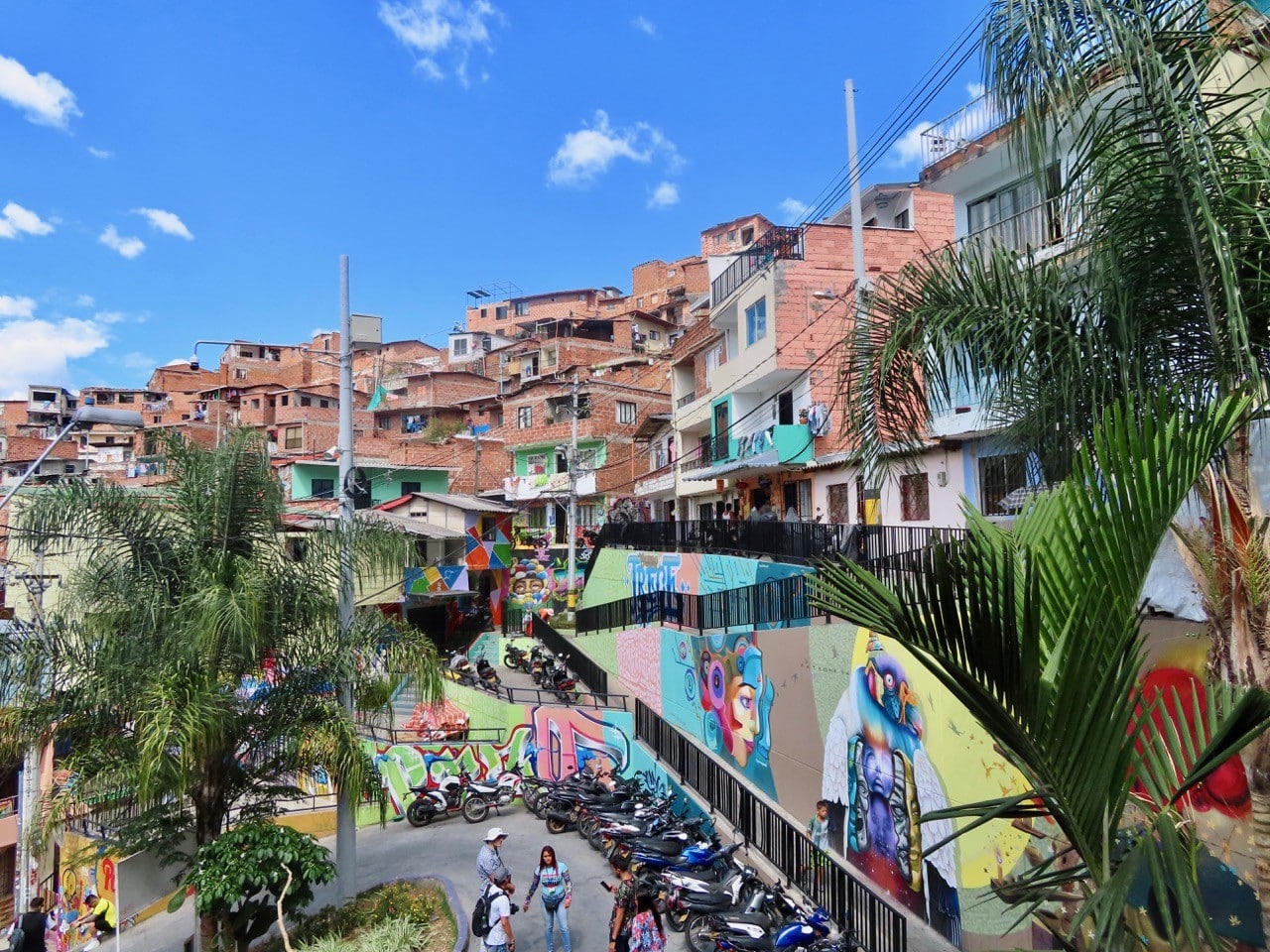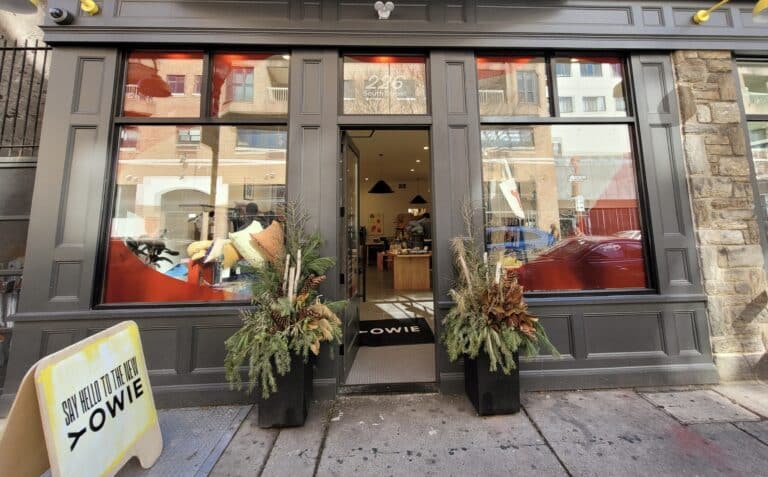The city in South American has become a hub for flowers, art and innovation.
In recent years, the city of Medellín has transformed into a vibrant and upscale city that visitors from all over the world have fallen in love with. Located in the Aburrá valley, surrounded by majestic mountain ranges, Medellín is the second largest city in Colombia and was named the Innovative City of the Year (by The Wall Street Journal in 2013), outranking New York and Tel Aviv. It’s year-round spring-like climate, modern art museums, bustling nightlife, and colorful cultural festivals, make it an ideal destination to visit in South America.
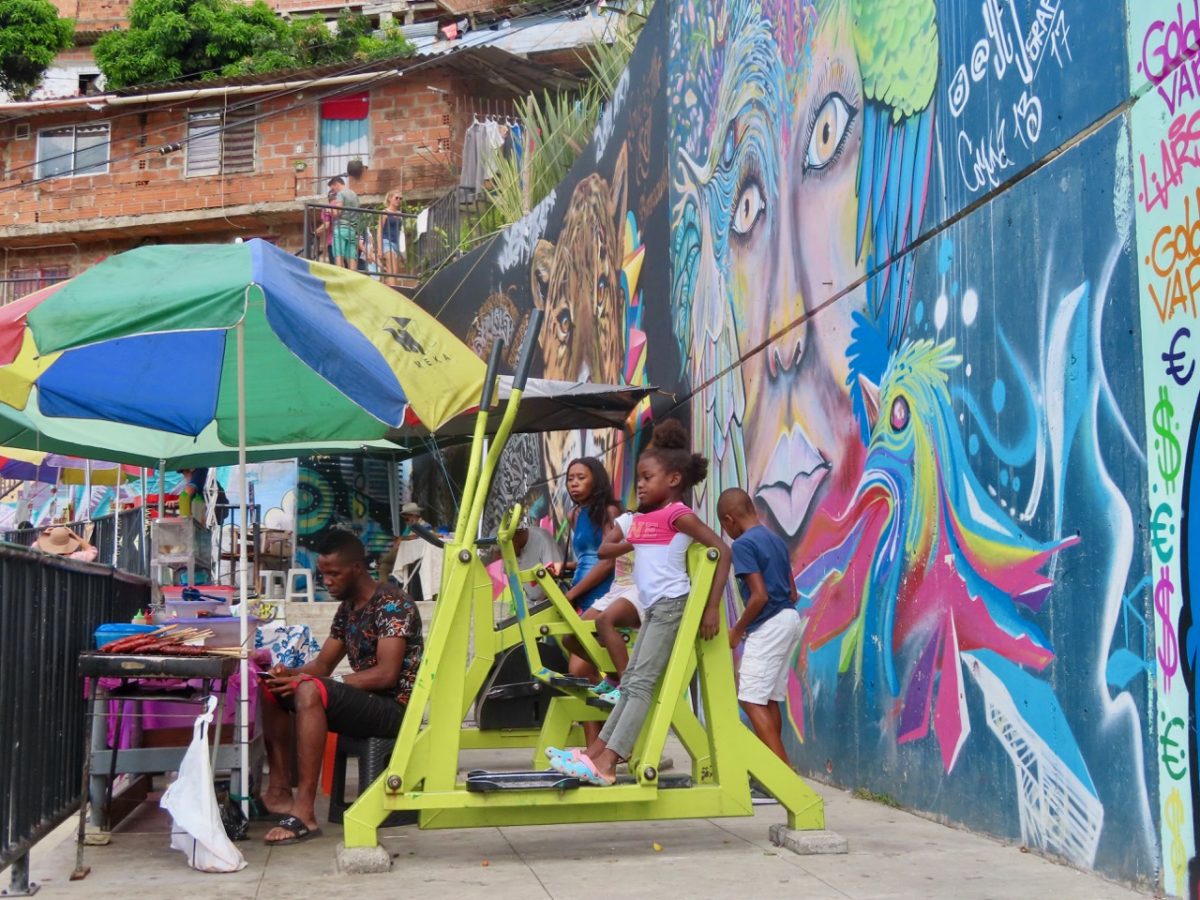
Most hotels and restaurants are concentrated in the upscale El Poblado neighborhood of Medellín. Here you can easily walk to trendy cafes, bars, clubs, and some of the largest shopping malls in the city. Medellín is also known as the fashion capital and offers everything from designer brands to local handicrafts. But, to learn about the city’s makeover, take the metro cable that connects the cosmopolitan lower city to the slum areas located along the slopes of the mountains.
RELATED: Where to Trace Afro-Colombian Culture in Cartagena
RELATED: Black Travel, Black Dollars Series: Rio de Janeiro
Connecting Communities
Medellín has the first (and only) metro system in Colombia, which has had a measurable social impact on the city. These impressive cable cars, now connect formerly difficult-to-reach favelas (shanty towns) with the metropolis. An entire “metro culture” program set up by the local authorities, offers educational opportunities and a leadership training school, as well as free libraries and afternoon music concerts at the stations, to many low-income families that live in these areas.
At Santo Domingo, you can find young men and women offering guided tours of their neighborhood known as Comuna 13. The area, which was once known as a hub for drug cartels, is now one of the biggest tourist attractions in Medellín. The residents are encouraged to display their social and emotional struggles through colorful murals outside their brick and cement walls, leading to an open-air museum of sorts. More than 25,000 visitors walk through the narrow hilly streets of Comuna 13 each week, watching rap artists and talented street artists. Local enterprises have popped up serving the tourists with trendy cafes, souvenir shops and snack bars.
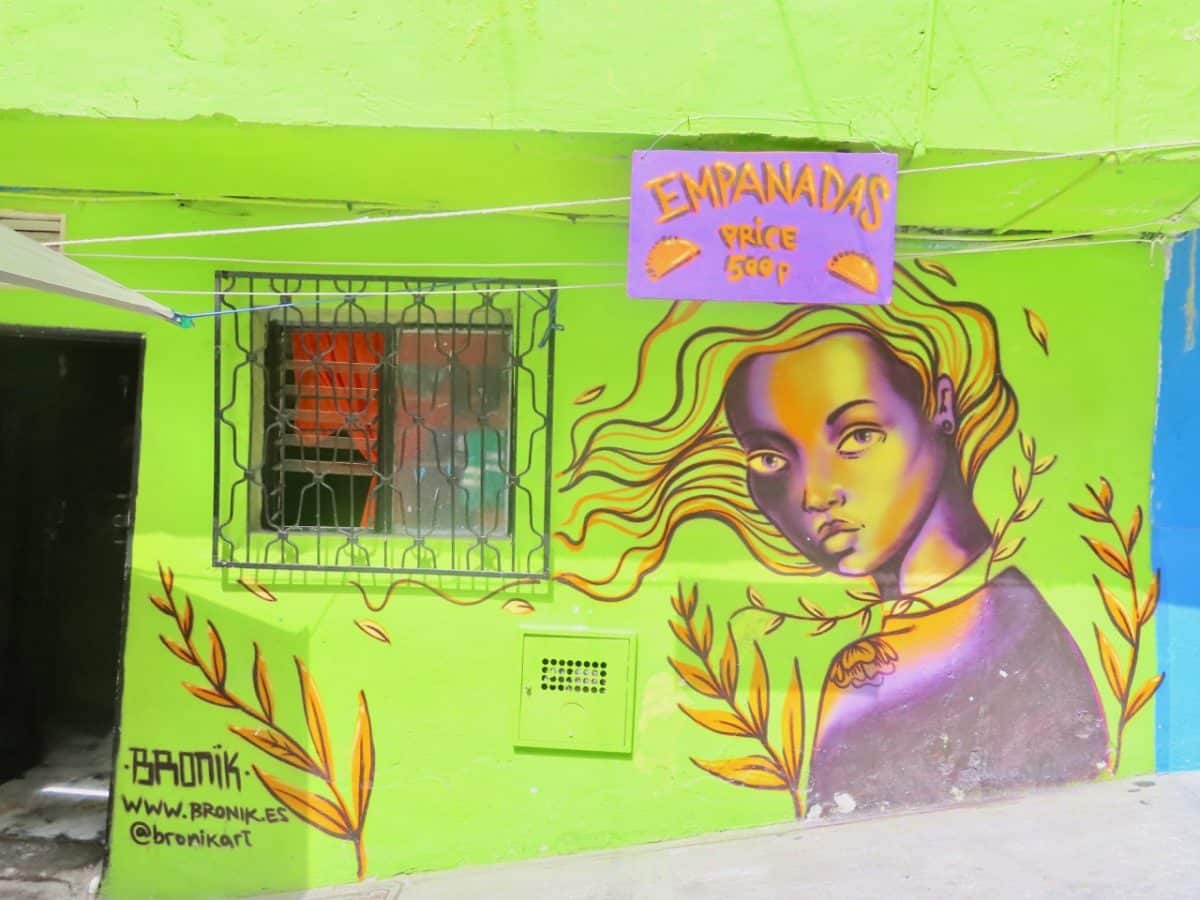
Further up, riding the cable car offers spectacular views of the valleys and forests, ending at Arví Park, an ecological nature preserve and pre-Hispanic archeological site. Residents from surrounding villages sell their products at Mercado Arví, an outdoor market located next to the gondola station. Here you can taste fresh homemade buñuelos, arepas, empanadas, tamales, honey, fruits, and mortiño (blueberry) wine, as well as shop for handicrafts. Walking trails located inside the park take you through natural forests covered with wildflowers, orchids, and butterflies. From here, you can make your way to some of the flower farms located in the township of Santa Elena. Many of these peasant families have set up restaurants and museums next to their farms. Here you can enjoy a traditional Colombian farm-style lunch of grilled meat, rice and beans, with a spectacular view of flower orchards.
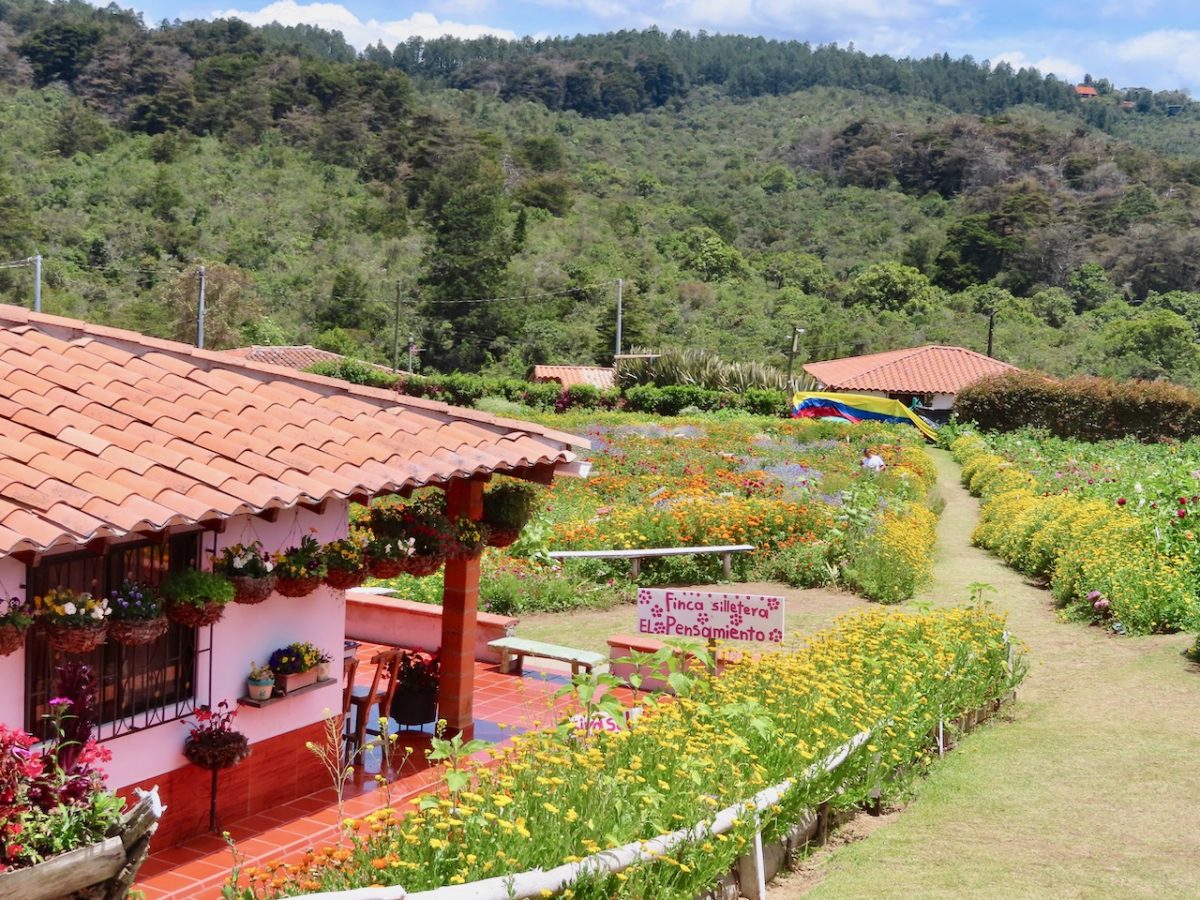
A Celebration With Flowers
One of the most important events in Medellín is the Feria de las Flores (The Flower Festival), which represents the end of slavery. Slaves once carried wealthy men and women on their backs up the steep mountains of Antioquia when there were no other means of transport. Once slavery was abolished, these wooden disks or saddles were repurposed to carry flowers and vegetables to sell in the markets. Many of the descendants of the saddle carriers, known as silleteros, mark the tradition by carrying flower arrangements on wooden planks through the city during the flower parade.
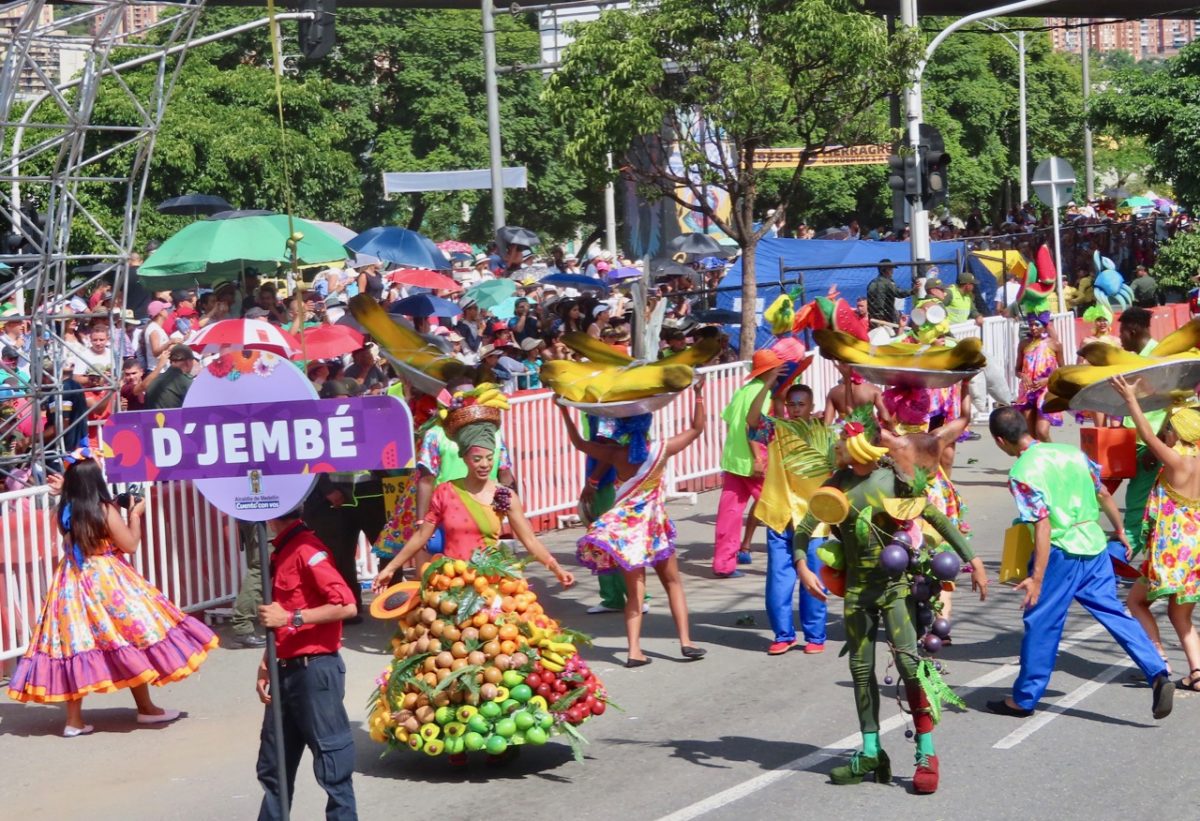
The “Cultura Silletera” (flower-growing culture) has been named an Intangible Cultural Heritage of the Nation. The festival also pays tribute to the flower industry, a thriving business in Colombia. The country is the second largest exporter of flowers, after The Netherlands.
More than 400 events take place during a 10-day period in August, including a pageant, class car parade, a horse parade, a flower parade, an orchid exhibition, street fairs and musical concerts. Attending the Flower Festival is one of the best ways to get an authentic taste of the paisa culture.
MORE FROM CUISINE NOIR
10 UNESCO Sites Every African-American Traveler Should Visit
Uruguay – Europe of the South

